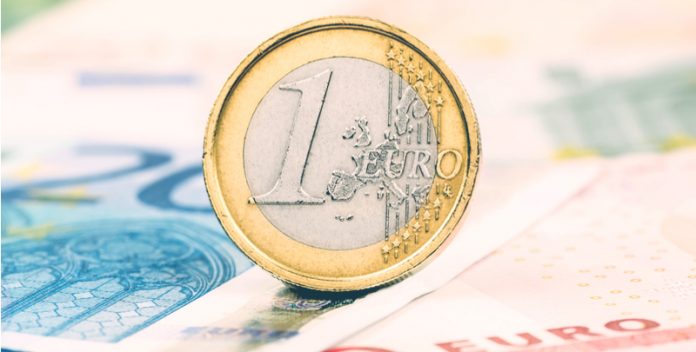The pound advanced against the euro in trading in the previous session as investors brushed aside disappointing economic data. The pound finished the day up marginally higher versus the euro at €1.1386, after hitting a session high of €1.1406.
| What do these figures mean? |
|---|
|
When measuring the value of a pair of currencies, one set equals 1 unit and the other shows the current equivalent. As the market moves, the amount will vary from minute to minute. For example, it could be written: 1 GBP = 1.13990 EUR Here, £1 is equivalent to approximately €1.14. This specifically measures the pound’s worth against the euro. If the euro amount increases in this pairing, it’s positive for the pound. Or, if you were looking at it the other way around: 1 EUR = 0.87271 GBP In this example, €1 is equivalent to approximately £0.87. This measures the euro’s worth versus the British pound. If the sterling number gets larger, it’s good news for the euro. |
A disappointing figure from the service sector purchasing managers index (PMI) made sure some pressure was kept on the pound. The service sector PMI which measures activity and business confidence in the sector, fell to its lowest level in four months. This comes after disappointing data for manufacturing and construction earlier in the week. Given that the service sector accounts for over 70% of the UK’s economic activity, the figure doesn’t bode well for the UK economy. It clearly shows that consumers are feeling more and more squeezed as wages stagnate and prices rise thanks to the Brexit-weakened pound.
Political uncertainty from Brexit and the recent UK general election weighed on sentiment also playing a part in the weak reading.
| Why does poor economic data drag on a country’s currency? |
|---|
| Slowing economic indicators point to a slowing economy. Weak economies have weaker currencies because institutions look to reduce investments in countries where growth prospects are low and then transfer money to countries with higher growth prospects. These institutions sell out of their investment and the local currency, thus increasing supply of the currency and pushing down the money’s worth. So, when a country or region has poor economic news, the value of the currency tends to fall. |
Today there is no economic data of any importance to drive trading, so fundamentals and a look towards the G20 is likely to take centre stage.
European Central Bank (ECB) Minutes in focus
This morning, euro investors could return to the preferred pastime of pre-empting interest rate hikes. Today sees the release of the minutes from the latest ECB interest rate meeting in June. Investors will be watching intently for any clues as to when the ECB could start raising interest rates or winding down its current bond-buying stimulus programme.
So far there have been mixed signals coming from the ECB. Only last week ECB President Draghi appeared to hint at an interest rate rise, with investors getting carried away at a possible normalisation of rates, only to be told the following day that Draghi’s comments had been misinterpreted. With this in mind, investors will want to pay close attention to the choice of words and the euro could be experience a high level of volatility, given its sensitivity to Draghi’s words.
|
This article was initially published on TransferWise.com from the same author. The content at Currency Live is the sole opinion of the authors and in no way reflects the views of TransferWise Inc. |





